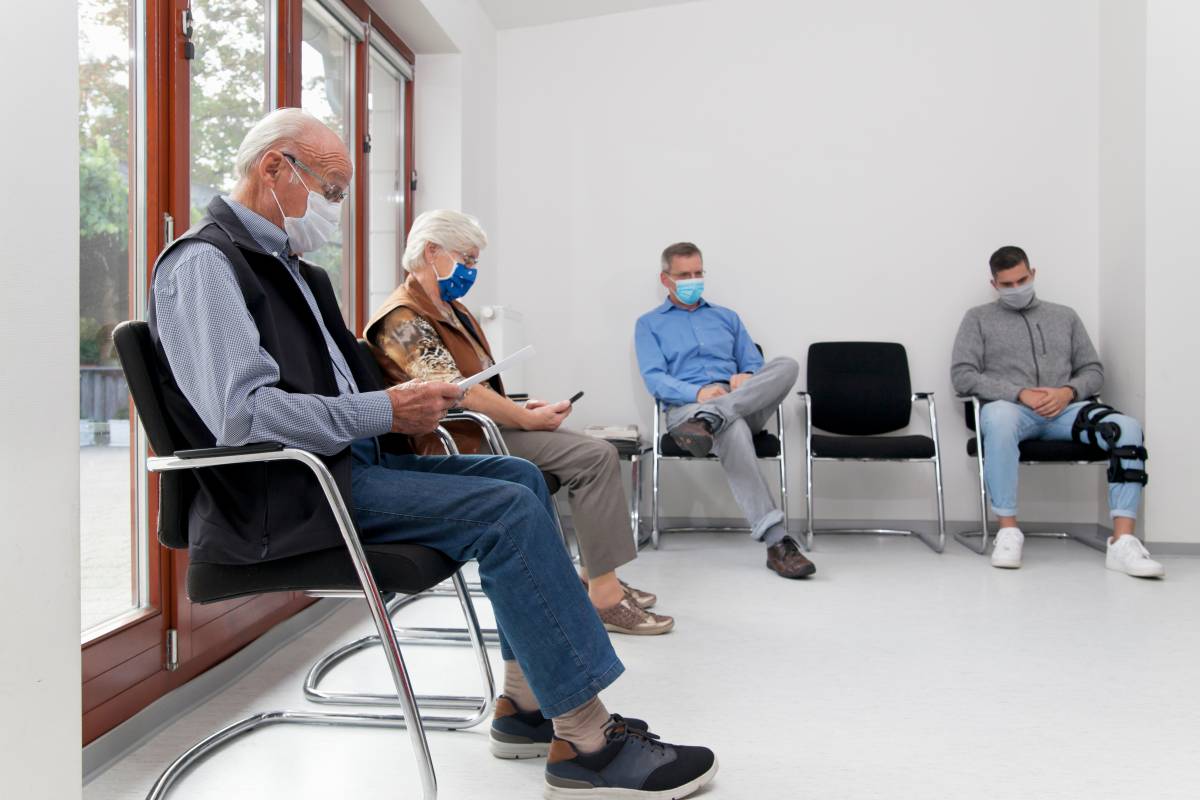First contact physiotherapists are 'perfectly placed' to be veteran clinical leads in GP practices
Pioneering physiotherapists in primary care settings are ‘perfectly placed’ to take on a vital role, acting as ‘champions’ for the care of veterans from the UK’s armed forces who have musculoskeletal (MSK) issues. That is the view of Dr (Colonel Retired) Jonathan Leach, who is the associate medical director for Armed Forces and Veterans Health NHS England.
Dr Leach told PhysioUpdate: ‘MSK problems are extremely common in military veterans and MSK issues are the most common reason for medical discharge in all the British Armed Forces. That’s why first contact physiotherapists (FCPs) are perfectly placed to act as their practice’s veteran clinical lead.'
Dr Leach added: ‘This is a great opportunity for FCPs to take a leadership role in their practice on an issue of national importance, championing and supporting improved outcomes for veterans and their families.’

This is a great opportunity for FCPs to take a leadership role in their practice on an issue of national importance, championing and supporting improved outcomes for veterans and their families [Jonathan Leach, NHS England]
Veteran Friendly Practice Accreditation Programme
The retired colonel’s comments were made to coincide with a bid by the Royal College of General Practitioners (RCGP) and NHS England to encourage more GP practices to become ‘Veteran Friendly Accredited’. More than 1,300 GP practices are already members of the scheme, which was launched in 2019.
Meanwhile, an evaluation of the programme, led by Alan Finnegan and colleagues from the University of Chester, and published earlier this month, revealed that having accreditation promotes better health care for veterans. Almost all (99 per cent) of the practice-based staff who contributed to the study endorsed that view.
Ukraine factor
Dr (Brigadier Retired) Robin Simpson, the RCGP’s clinical champion for veterans, voiced concerns that the current situation in Ukraine might lead to veterans needing increased levels of support. He said the government’s new Veterans Strategy Action Plan included a commitment to make the UK ‘the best place in the world to be a veteran’ by 2028.
‘There has never been a more important time for practices to become Veteran Friendly Accredited’, Dr Simpson noted.
Key points from Dr Simpson's comments
- most practices see a veteran patient every day
- the RCGP programme is free and can be implemented quickly
- patients who might be struggling can be identified, supported and referred on, where necessary
Dr Simpson added: ‘This scheme gives clinicians the opportunity and support to lead their practice in an area that has been identified as a national priority – and this evaluation [by Alan Finnegan] clearly demonstrates the scheme's effectiveness.’
University of Chester study
Alan Finnegan, professor of nursing and military mental health at University of Chester, said: ‘This independent evaluation has demonstrated very encouraging results for the GP Veteran Friendly Accredited Practices Programme, with many positive outcomes.'
Professor Finnegan added: ‘It was very clear from the results and our conversations that veterans appear to receive better healthcare when GPs, nurses and other primary healthcare staff understand their needs. We found that the programme, which leads to improved knowledge of veteran specific secondary and tertiary services and of the priority referral pathway, is beneficial to veterans and their families.’
Factfile
Post-traumatic stress disorder is thought to affect about one veteran in eight (12 per cent)
more than half (52 per cent) may have a long-term illness, disability or infirmity
veterans are less likely to seek help if they feel their healthcare professional might not understand, studies show
As a practice, we are now more aware of the specific issues that involve patients who are veterans so I think that makes us more responsive to their needs [clinician's view from University of Chester study]
To find out more about the RCGP programme and to fill in a form for more information, visit: https://www.rcgp.org.uk/veterans
For more information on the University of Chester study, visit: https://bjgpopen.org/content/early/2022/04/05/BJGPO.2022.0012
To find out more about recent government policy in this area, visit: https://www.gov.uk/government/news/half-a-million-pounds-of-research-funding-set-to-boost-understanding-of-veteran-needs
Author: Ian A McMillanShare it with














